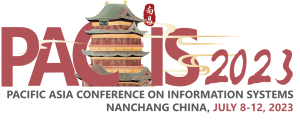Abstract
To acquire new customers, firms have adopted referral reward programs (RRPs), a social marketing strategy by which firms promote their products or services via existing customers’ social networks and reward both the inviter and the invitee. To address the intrinsic-extrinsic dilemma in RRPs, this research investigates the effect of uncertainty in incentive allocation mechanisms on inviters’ referral intention and explores its mechanism and boundary conditions. We plan to conduct three experiments to test the hypotheses. The expected results are that, compared to the certain one, the uncertain incentive allocation reduces the inviter’s perceived social costs; and thus, increases his/her referral intention. This effect is likely to be moderated by the tie strength (strong tie vs. weak tie) between the inviter and invitee and the allocation information disclosure (private vs. public). Our study contributes to the research on RRP participation and uncertainty, and helps marketers to design effective incentive allocation mechanisms.
Recommended Citation
Jin, Huijie; Wang, Kanliang; and Lu, Shouwang, "Embracing Uncertainty Between Us: On the Design of Incentive Allocation Mechanism in Referral Reward Programs" (2023). PACIS 2023 Proceedings. 124.
https://aisel.aisnet.org/pacis2023/124
When commenting on articles, please be friendly, welcoming, respectful and abide by the AIS eLibrary Discussion Thread Code of Conduct posted here.



Comments
Paper Number 1517; Track E-Business; Short Paper